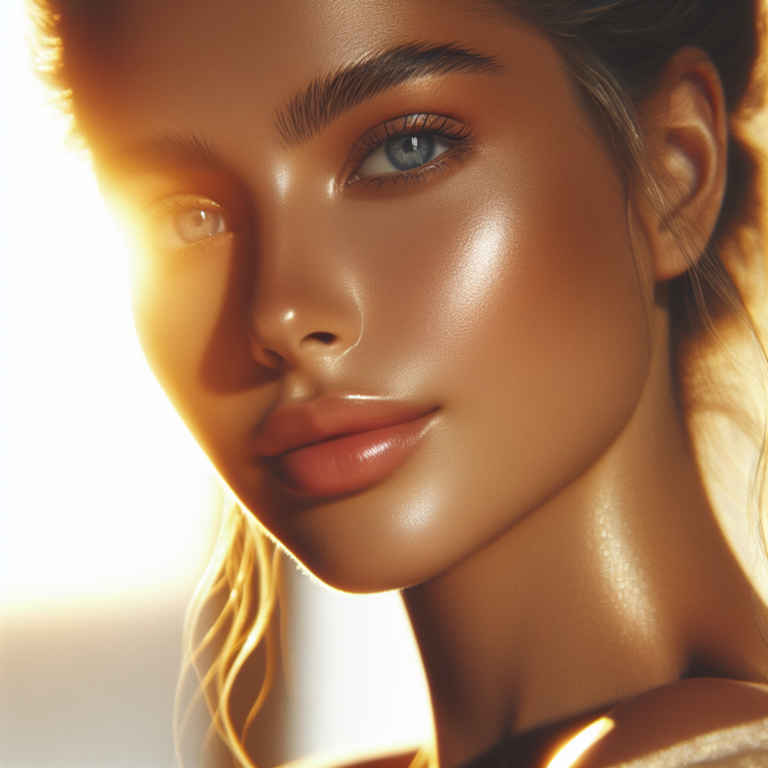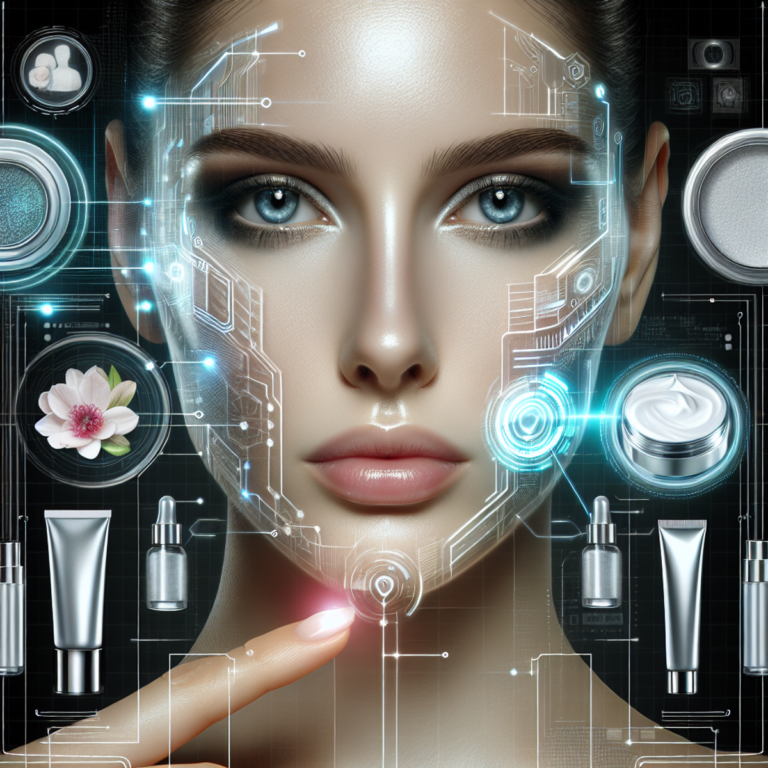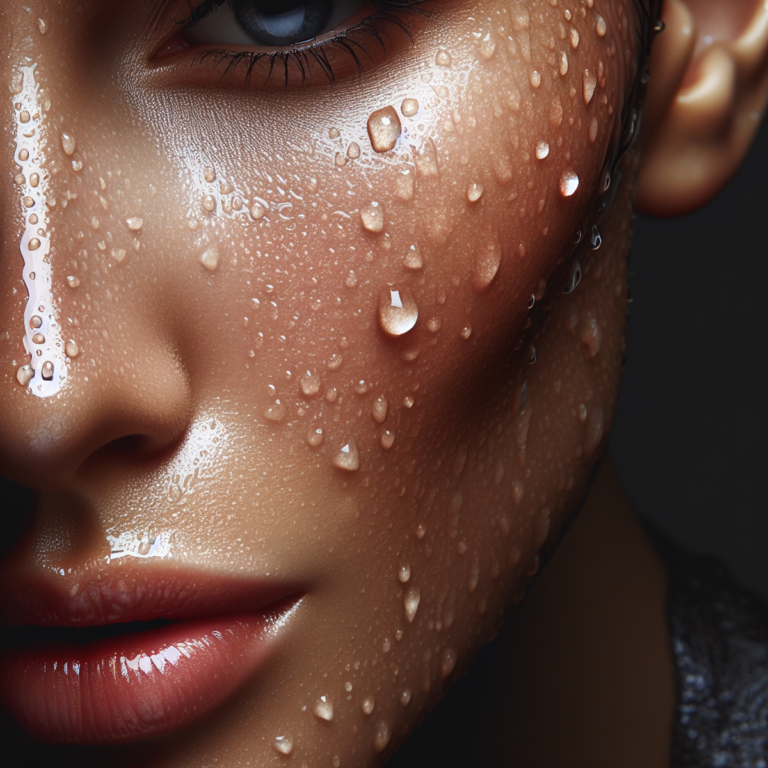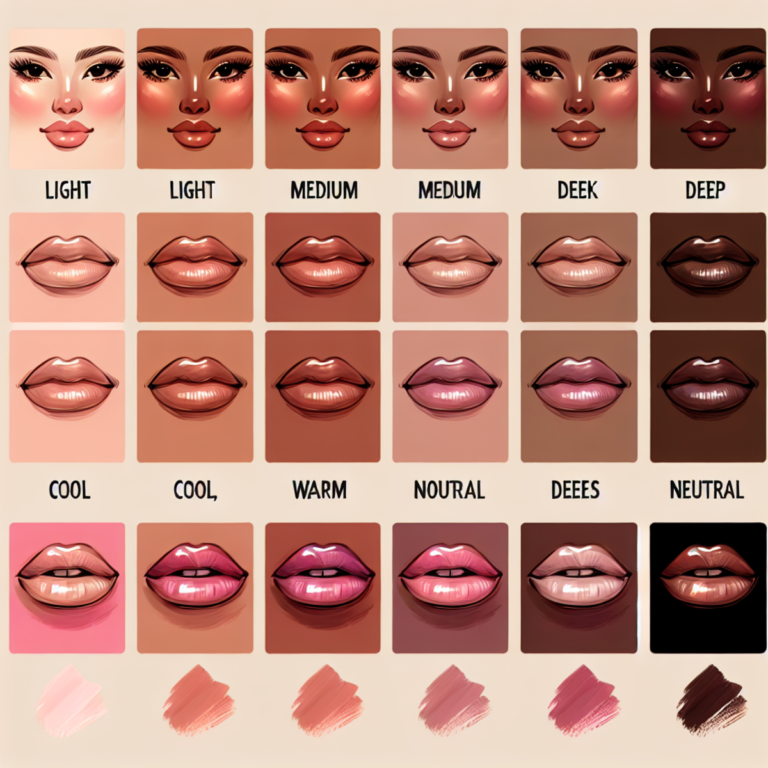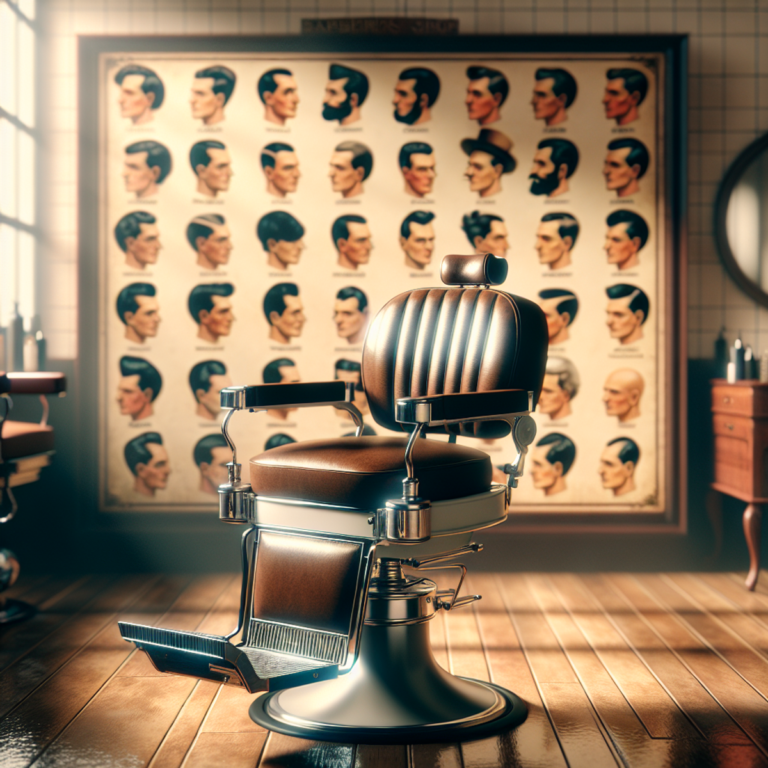How Generative AI Will Shape the Face of the Beauty Industry
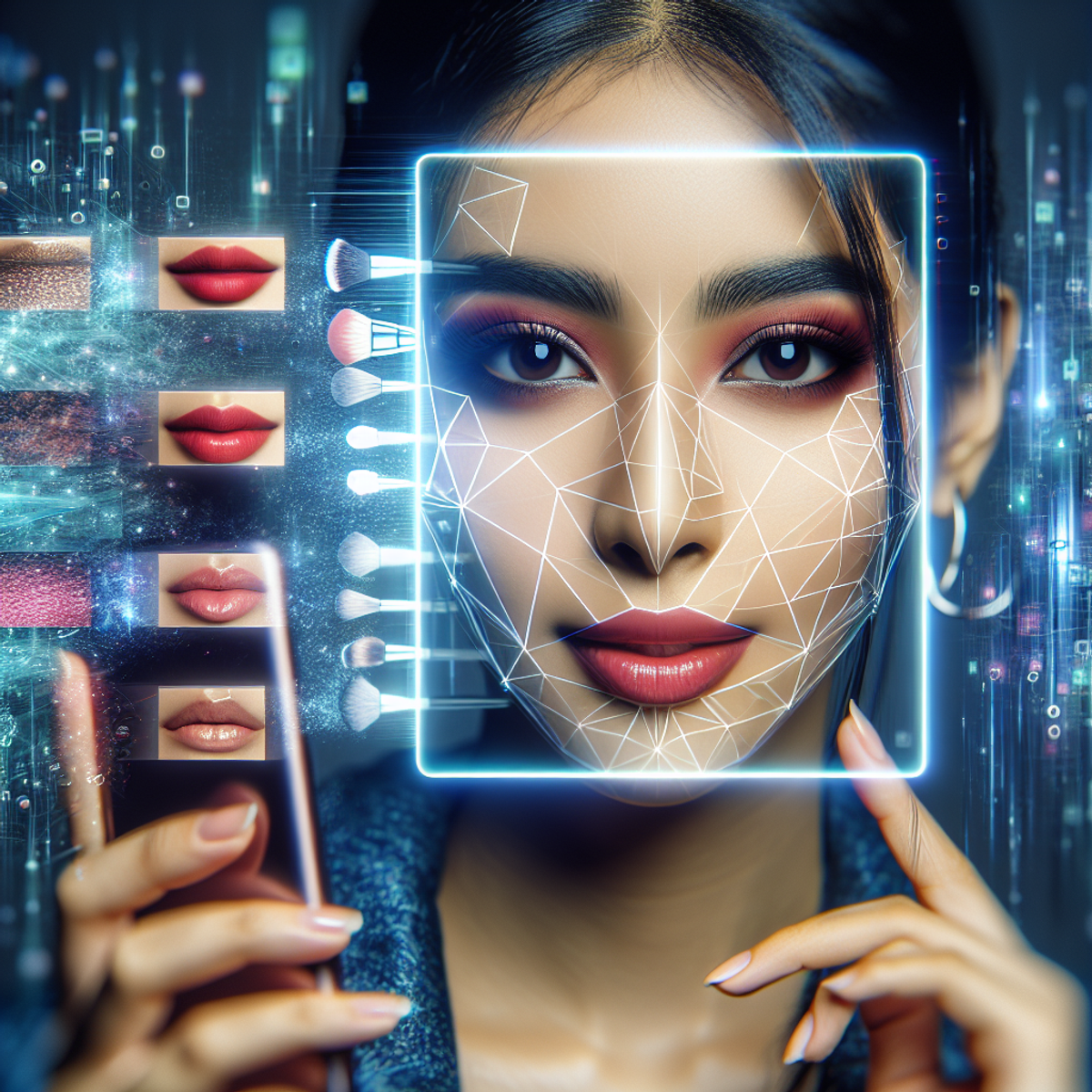
Introduction
Generative AI is an advanced technology that combines artificial intelligence and machine learning. It has the potential to completely change the beauty industry. By using generative AI algorithms, beauty brands can:
- Create virtual beauty makeovers
- Generate unique content
- Provide personalized product suggestions
- Analyze consumer opinions
- And much more!
What is Generative AI?
Generative AI refers to machines’ ability to create original and innovative content like images, text, or even conversations. This is done through deep learning models that are trained on large amounts of data. By understanding patterns from this data, these models can then generate new outputs that imitate human creativity.
Why is Generative AI Important for the Beauty Industry?
In the beauty industry, generative AI has many exciting possibilities:
- Virtual Try-On Experiences: Users can try on makeup virtually, either based on their own preferences or inspired by celebrity looks.
- Automated Content Creation: Brands can use generative algorithms to automatically create engaging content like conversations, stories, and images.
- Personalized Product Recommendations: By analyzing individual preferences and facial features, generative algorithms can suggest tailored products to consumers.
These applications offer numerous benefits for beauty brands:
- Enhanced Customer Engagement: Generative AI allows brands to interact with customers in new and immersive ways.
- Improved Personalization: By understanding individual needs and preferences, brands can provide customized experiences.
- Streamlined Operations: Automation through generative AI can optimize processes and save time.
However, it’s crucial for brands to be aware of the ethical concerns and potential risks associated with using generative AI extensively.
In this article, we will explore how generative AI is transforming different areas of the beauty industry:
- Virtual Beauty Transformation
- Content Creation and Curation
- Personalized Product Recommendations
- Marketing Strategies
We’ll discuss the exciting possibilities that this technology brings as well as the challenges that come with it. So let’s get started!
1. Virtual Beauty Transformation
Using Generative AI for Virtual Try-On Experiences
Generative AI has completely changed the beauty industry by offering virtual try-on experiences for makeup products. This allows consumers to try out different looks inspired by their favorite celebrities. Beauty brands are now able to create interactive platforms where users can apply various makeup styles and products to their own images in real time, thanks to generative AI. This not only makes shopping more enjoyable but also helps consumers make better decisions when purchasing.
Challenges in Developing Accurate Virtual Beauty Guide Applications
While the use of generative AI for virtual beauty transformation shows great promise, there are several challenges that developers face in creating accurate and reliable applications:
- Color Accuracy: It’s difficult to accurately match the virtual representation of makeup products with their real-life counterparts due to variations in lighting conditions and skin tones.
- Texture Realism: Creating a realistic simulation of the texture and finish of different makeup products is a complex task that requires advanced algorithms.
- Facial Recognition and Tracking: To ensure a seamless virtual try-on experience, precise facial recognition and tracking technology is needed.
To overcome these challenges, continuous improvements in generative AI models and machine learning algorithms are crucial. Only then can we provide consumers with an immersive and accurate virtual beauty transformation experience.
2. Content Creation and Curation with Generative AI
Generative AI is revolutionizing the beauty industry, transforming how content is created and curated. This technology offers innovative ways to connect with consumers. Here’s what you need to know:
How generative AI is changing creative work in the beauty industry:
- Automated Conversations: Generative AI enables beauty brands to interact with customers on a more personal level by simulating conversations. Chatbots powered by generative models can offer product recommendations, answer skincare-related queries, or even engage in virtual makeup consultations. For instance, L’Oréal’s chatbot “Beauty Gifter” uses generative AI to provide personalized gift suggestions based on user input.
- Storytelling: Generative AI can generate compelling narratives that resonate with consumers. Beauty brands can leverage this technology to create immersive stories around their products or highlight the journey of a specific ingredient. By combining generative algorithms with human creativity, brands like Glossier have successfully engaged their audience through captivating narratives.
- Image Generation: Generative AI assists in creating visually stunning images for marketing campaigns or social media content. With the ability to generate high-quality images of products or makeup looks, beauty brands can produce a wide range of visuals without extensive photo shoots. This saves time and resources while ensuring consistent brand aesthetics.
Balancing authenticity and originality when leveraging generative AI for content curation:
While generative AI offers exciting opportunities for content creation and curation, it is crucial to strike a balance between authenticity and originality:
- Authenticity: Consumers value authenticity in the beauty industry. Brands should use generative AI as a tool to enhance their existing creative capabilities rather than relying solely on automated content generation. By incorporating human input and maintaining transparency, brands can ensure that their messages align with their values and resonate with their target audience.
- Originality: While generative AI can assist in generating content, it is essential to avoid over-reliance on pre-existing templates or trends. Brands should strive for originality and uniqueness in their content, ensuring that it stands out in a saturated market. By combining generative AI with human creativity, brands can create content that is both innovative and authentic.
Generative AI is changing the landscape of content creation and curation in the beauty industry. It enables automated conversations, compelling storytelling, and visually stunning image generation. However, it is crucial for brands to maintain authenticity and originality when leveraging this technology. By finding the right balance between human creativity and generative algorithms, beauty brands can create engaging and unique content that resonates with consumers.
To learn more about the impact of generative AI on creative work, check out this article. Additionally, for insights on balancing AI with authenticity in content curation, this blog post provides valuable guidance.
3. Personalized Product Recommendations through Generative Algorithms
Generative AI has the potential to revolutionize the way beauty products are recommended to consumers. One exciting concept that has emerged is “makeup decoding,” where generative algorithms analyze individual preferences and facial features to suggest personalized products. Here’s a closer look at how this technology can transform the beauty industry:
Makeup Decoding
Generative AI can analyze various aspects of a person’s appearance, such as skin tone, eye color, and face shape, to generate personalized product recommendations. By understanding a consumer’s unique features, generative algorithms can suggest makeup products that are most likely to enhance their natural beauty.
Tailored Recommendations
Traditional product recommendation systems often rely on general demographics or purchase history to make suggestions. However, generative AI takes personalization to the next level by considering individual characteristics. This level of customization can lead to higher customer satisfaction and increased sales.
Ethical Considerations
While personalized product recommendations powered by generative algorithms offer great potential, it’s crucial to address ethical considerations. For example, there is a risk of perpetuating unrealistic beauty standards or inadvertently excluding certain demographics if the algorithms are not properly trained or monitored for bias.
To ensure ethical use of generative AI in product recommendations, it is essential for beauty brands to:
- Diverse Training Data: Ensure that the datasets used to train the generative algorithms are diverse and representative of different skin tones, ethnicities, and body types. This will help minimize biases and create inclusive recommendations.
- Continuous Monitoring: Regularly evaluate and monitor the performance of the generative algorithms to identify any biases or inaccuracies. Implementing feedback loops and involving human oversight can help maintain fairness and accuracy in product recommendations.
- Transparency: Be transparent with consumers about the use of generative AI in personalized recommendations. Clearly communicate how the technology works and the factors it considers to build trust and ensure informed decision-making.
By leveraging generative AI for personalized product recommendations, the beauty industry can enhance the shopping experience for consumers and drive business growth. However, it is crucial to prioritize ethical considerations to ensure fairness, inclusivity, and transparency in the use of this technology.
4. Transforming Beauty Marketing Strategies with Generative Technology
Generative AI has completely revolutionized beauty marketing strategies, offering a fresh and innovative approach to content development and enhancing the overall customer experience.
Leveraging generative AI for Creative Development
The beauty industry is leveraging the power of generative AI to create captivating and unique marketing campaigns. By harnessing the capabilities of machine learning models, brands can now generate visually stunning advertisements and craft compelling copy that resonates with individual consumers. This level of personalization allows brands to connect with their target audience on a much deeper level, fostering brand loyalty and driving sales.
Enhancing the Customer Experience
Generative technology empowers beauty brands to deliver highly personalized experiences tailored to each customer’s preferences and needs. Through the use of generative algorithms, brands can provide customized product recommendations, interactive virtual experiences, and curated content that aligns with individual tastes. This level of customization not only enhances the overall customer journey but also establishes meaningful connections between the brand and its consumers.
By embracing generative technology in their marketing strategies, beauty brands can:
- Ignite creativity in their campaigns by leveraging generative AI’s unique capabilities.
- Foster higher levels of customer engagement through personalized experiences.
- Differentiate themselves in an increasingly competitive market by delivering tailored interactions based on individual preferences.
To learn more about this transformative trend, check out these insightful resources: McKinsey’s analysis on personalizing the customer experience, Sprinklr’s blog post on generative AI’s impact on customer experience, and this LinkedIn article highlighting why generative AI is crucial for e-commerce and retail industries.
5. Understanding Consumer Sentiments through Natural Language Processing (NLP)
Keywords: sentiment analysis, NLP
The marriage of Natural Language Processing (NLP) and generative models has brought about a paradigm shift in the beauty industry’s understanding and analysis of consumer sentiments. This powerful combination allows beauty brands to delve deep into the preferences, opinions, and emotions expressed by consumers regarding their products and industry trends. The insights gained from NLP enable businesses to tailor their marketing strategies, product development, and customer experiences to better align with consumer desires and expectations.
1. Leveraging NLP techniques in combination with generative models for comprehensive sentiment analysis
Generative AI technology plays a pivotal role in optimizing business operations for beauty brands through sentiment analysis. By harnessing generative models powered by NLP, companies can efficiently process vast amounts of consumer-generated content such as reviews, social media posts, and online discussions. This enables them to extract meaningful sentiment-related data, identify patterns, and uncover actionable insights that inform decision-making processes.
2. The transformative impact of generative AI on business operations for beauty brands
Moreover, the integration of generative AI and NLP facilitates the identification of emerging trends and shifts in consumer sentiments within the beauty industry. By staying attuned to evolving preferences and perceptions, brands can proactively adapt their strategies to effectively resonate with their target audience.
In essence, the combination of NLP and generative AI empowers beauty companies to gain a deeper understanding of consumer sentiments, behaviors, and preferences. This not only enhances their ability to connect with their audience on a more personal level but also enables them to make data-driven decisions that drive business growth and foster lasting customer relationships. To learn more about marketing trends involving artificial intelligence, check out this blog post.
6. Challenges in Adopting Generative AI in the Beauty Industry
Generative AI has the power to transform the beauty industry, but it also brings along some challenges that need to be overcome for its successful adoption. Beauty brands must address these challenges to ensure they use generative AI technology responsibly and effectively. Here are some key challenges and ways to overcome them:
1. Being Vigilant Against Biases
When training generative AI models for the beauty industry, it’s important to be aware of and reduce any biases that may arise. Algorithmic bias detection and mitigation best practices can help in this regard. Biases can happen due to imbalances in the training data or inherent biases present in the algorithms themselves. To ensure fairness and inclusivity, beauty brands must actively monitor and correct for biases during the training process. Some measures they can take include:
- Implementing rigorous data collection and curation processes to reduce biases in training datasets.
- Continuously monitoring and evaluating generative AI models for offensive or inappropriate content by leveraging tools such as AI content safety, implementing strict filters and controls.
2. Addressing Offensive Content
Generative AI models learn from existing data, which means they can unintentionally create offensive or inappropriate content. This is a significant challenge in the beauty industry where brands aim to maintain a positive image and cater to diverse audiences. To tackle this challenge, brands must carefully select and filter their training data to minimize the risk of generating offensive content. The UNESCO document on ethical considerations in AI development provides valuable insights into this aspect.
3. Managing Plagiarism Risks
The widespread use of generative technology raises concerns about intellectual property rights and plagiarism. With AI’s ability to generate new content, there is a risk of unintentional plagiarism or copyright infringement. Beauty brands must establish clear guidelines on intellectual property rights and educate employees on proper usage of generative AI technology to mitigate these risks.
To overcome these challenges, beauty brands can also collaborate with legal experts to establish clear guidelines on intellectual property rights and educate employees on proper usage of generative AI technology.
“The adoption of generative AI in the beauty industry presents exciting opportunities, but it also comes with its fair share of challenges. Being vigilant against biases, offensive content, and plagiarism risks is crucial to ensure responsible and effective use of this technology. By proactively addressing these challenges, beauty brands can harness the power of generative AI to drive innovation and enhance the customer experience.”
The Future Landscape of Beauty Industry Transformed by Generative AI
Looking ahead, it’s clear that generative AI will continue to shape the beauty industry in significant ways. This technology offers endless possibilities and advancements, with the potential to revolutionize various aspects of the industry.
Key Takeaways
Here are the main points we’ve covered regarding generative AI in the beauty industry:
1. Virtual Beauty Transformation
- Generative AI enables virtual try-on experiences and accurate beauty guides based on celebrity looks.
- This provides consumers with personalized and interactive makeup experiences.
2. Content Creation and Curation
- With generative AI, the beauty industry can use automated conversations, storytelling, and image generation for creating innovative and engaging content.
- However, it’s important to find a balance between authenticity and originality when using this technology.
3. Personalized Product Recommendations
- Generative algorithms can analyze individual preferences and facial features to suggest personalized beauty products.
- While this is a powerful tool for improving the customer experience, it’s crucial to consider ethical implications when using such algorithms.
4. Transforming Marketing Strategies
- Generative AI opens up new possibilities for creative development in marketing campaigns, allowing brands to connect with consumers in unique ways.
- By offering personalized experiences powered by generative technology, brands can enhance the customer journey and build stronger connections with their target audience.
5. Understanding Consumer Sentiments
- By combining generative models with natural language processing techniques, beauty brands can gain valuable insights into consumer sentiments regarding products and trends.
- This not only optimizes business operations but also helps in tailoring products to effectively meet consumer demands.
Ethical Considerations
However, as we embrace the potential of generative AI in the beauty industry, it’s crucial to acknowledge and address its possible ethical, social, and economic implications. The widespread use of this technology raises concerns about privacy, bias, transparency, and accountability.
It’s essential to take a balanced approach when leveraging generative AI in the beauty industry, considering both its benefits and potential risks:
“The future of the beauty industry is being transformed by generative AI. It offers exciting opportunities for virtual beauty experiences, content creation, personalized recommendations, marketing strategies, and consumer sentiment analysis.”
Conclusion
By staying informed about the latest developments in this field and participating in discussions on responsible AI use, we can ensure that generative AI is used to its full potential while upholding ethical standards and delivering value to consumers.
Let’s embrace this technology with caution and strive for a future where generative AI enhances the beauty industry in a responsible and sustainable manner.



